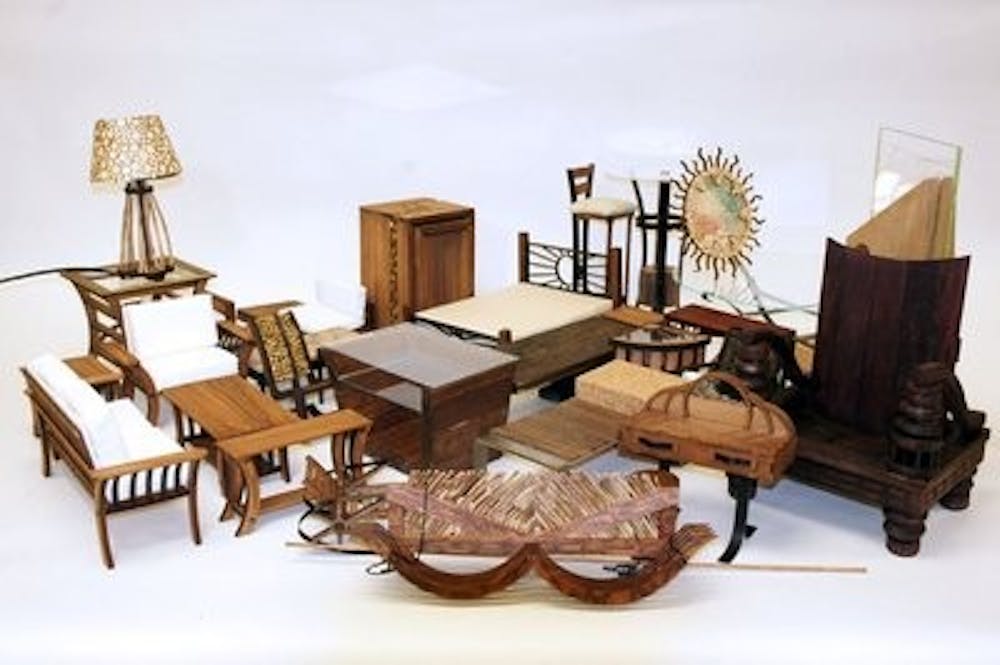A class of industrial design students is gaining hands-on design experience by working with reclaimed farm tools and converting them into furniture.
The students work with the sustainable furniture company Groovystuff.
Groovystuff has partnered with the University through the University Hall of Innovation and Job Creation project, which allows students firsthand experience designing and marketing products.
This is the fourth year Auburn has worked with Groovystuff.
In addition to the 19 Auburn students participating, 13 visiting students from Shu-Te University in Kaohsiung, Taiwan are involved.
Students submit three design sketches and one scale model for Groovystuff's co-founder Chris Bruning to look over each week.
The course instructor, Tin-Man Lau, provides feedback on the structure of their designs as well.
Materials the students have access to range from plows and yokes made of weathered teak to oil drum barrels in various shades. Students may use supplemental pieces in their designs, but the reclaimed materials should not be drastically altered from their original state.
"Using all the pieces and not chopping them up is the most difficult part of the project," said Zach Willard, sophomore in industrial design. "You have to use as much of the reclaimed material as possible and not make new cuts."
Groovystuff's aesthetic calls for distressed and antique pieces, so polishing touches, such as excessive sanding or altering major portions of the material, are not necessary.
"It's very different in the class because Chris wants the model to be rough, when usually they want the final product to look clean," said Shao-Wen Liao, senior in industrial design at Shu-Te University.
The project not only offers real world experience in design, but also in marketing and networking.
In October, the students will showcase their models for the High Point Market furniture show in High Point, North Carolina.
"There are infinite opportunities for students," Lau said. "They go to one of the biggest furniture shows in the county and get to meet with people in the field."
Some students also work Groovystuff's booth at High Point, where they meet buyers and gain experience taking product orders.
"Last year I didn't go to High Point, but this year I'd like to go and actually stand next to my project and hand out business cards," said Keith Locke, senior in industrial design.
Each student signs a contract with Groovystuff, which states they will receive one percent of the earnings from their piece if chosen to be produced and sold by the company.
"The fact that it could actually be produced is exciting," Willard said. "It's a chance to get your name out there and market yourself before you get into the business."
Groovystuff's collaboration is not just a design challenge or networking opportunity, but also a lesson in sustainability.
"It's good to show students that even though it's someone's junk, it has high market value once it has design in it," Lau said.
Lau's students echo the same sentiment about the importance of working with sustainable materials.
"There are so many things that are made to be thrown away," Willard said. "With things that are reclaimed, you're doing your part to help not use so much material while turning it into something useful again."
Do you like this story? The Plainsman doesn't accept money from tuition or student fees, and we don't charge a subscription fee. But you can donate to support The Plainsman.





